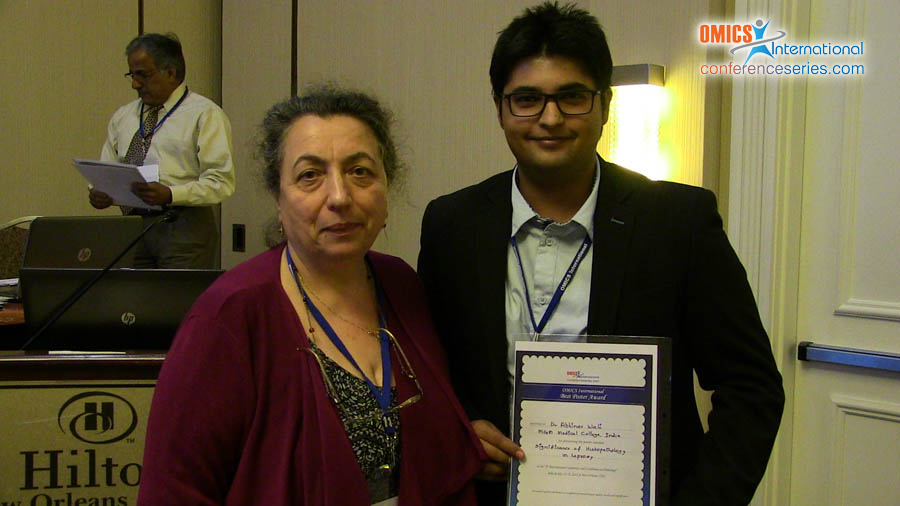
Abhinav Walia
Mahatma Gandhi Missions Medical College and Hospital, India
Title: Comparative study of conventional pap smear versus manual liquid based cytology in screening of cervical cancer
Biography
Biography: Abhinav Walia
Abstract
Cervical cancer is one of the leading causes of cancer deaths in the world. India accounts for one fifth of the world’s burden of cervical cancer. Cytology screening by the Papanicolaou smear remains the main stay for control of cervical carcinoma. Liquid-based cervical cytology was developed to improve the diagnostic reliability of Conventional Pap smears. The present study was undertaken to evaluate a manual liquid based cytology technique (SurePath) and to compare the sensitivity of LBC with conventional Pap smear. The aim of the study was to compare the cytomorphology of conventional pap smears and manual liquid based cytology smears and to find out whether manual liquid based cytology method can be established for routine use in our laboratory setup. In the present study cervical smears were collected by the gynaecologist using Ayre’s spatula for the conventional Pap smear method and using SurePath cytobrush for manual liquid based cytology technique. 200 cases were examined for cytomorphological parameters. The details regarding cell size, cytoplasmic and nuclear details were studied for making the diagnosis. The observed results indicated that women screened with an LBC sample had significantly decreased detection rates of inadequate smears and increased detection of low-grade squamous intraepithelial lesion (LSIL)/ atypical cytology. Cells were better preserved and not obscured by blood, mucus, or inflammatory cells. The results showed increased sensitivity of LBC without loss of specificity. Liquid based cytology improves the quality of the sample and reduces the likelihood of false negative cytology results. Thus it will significantly improve early detection and treatment of cervical lesions.

